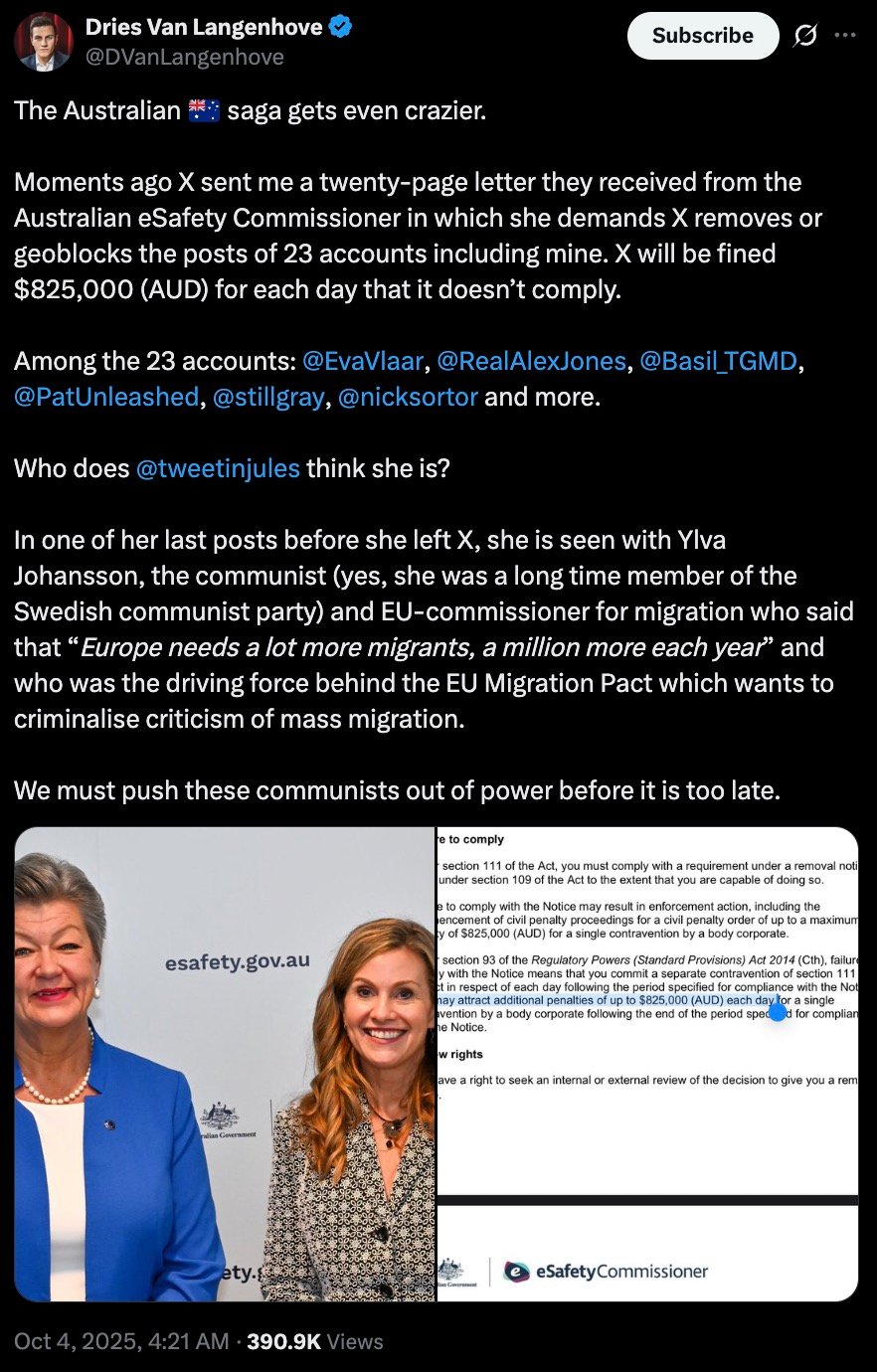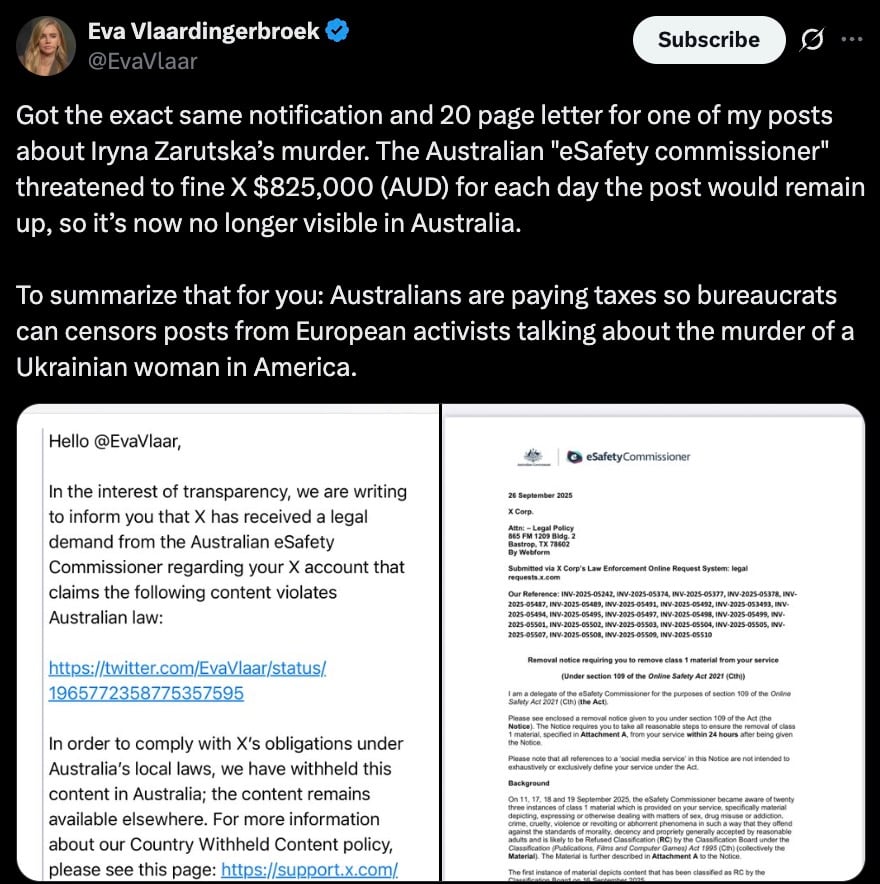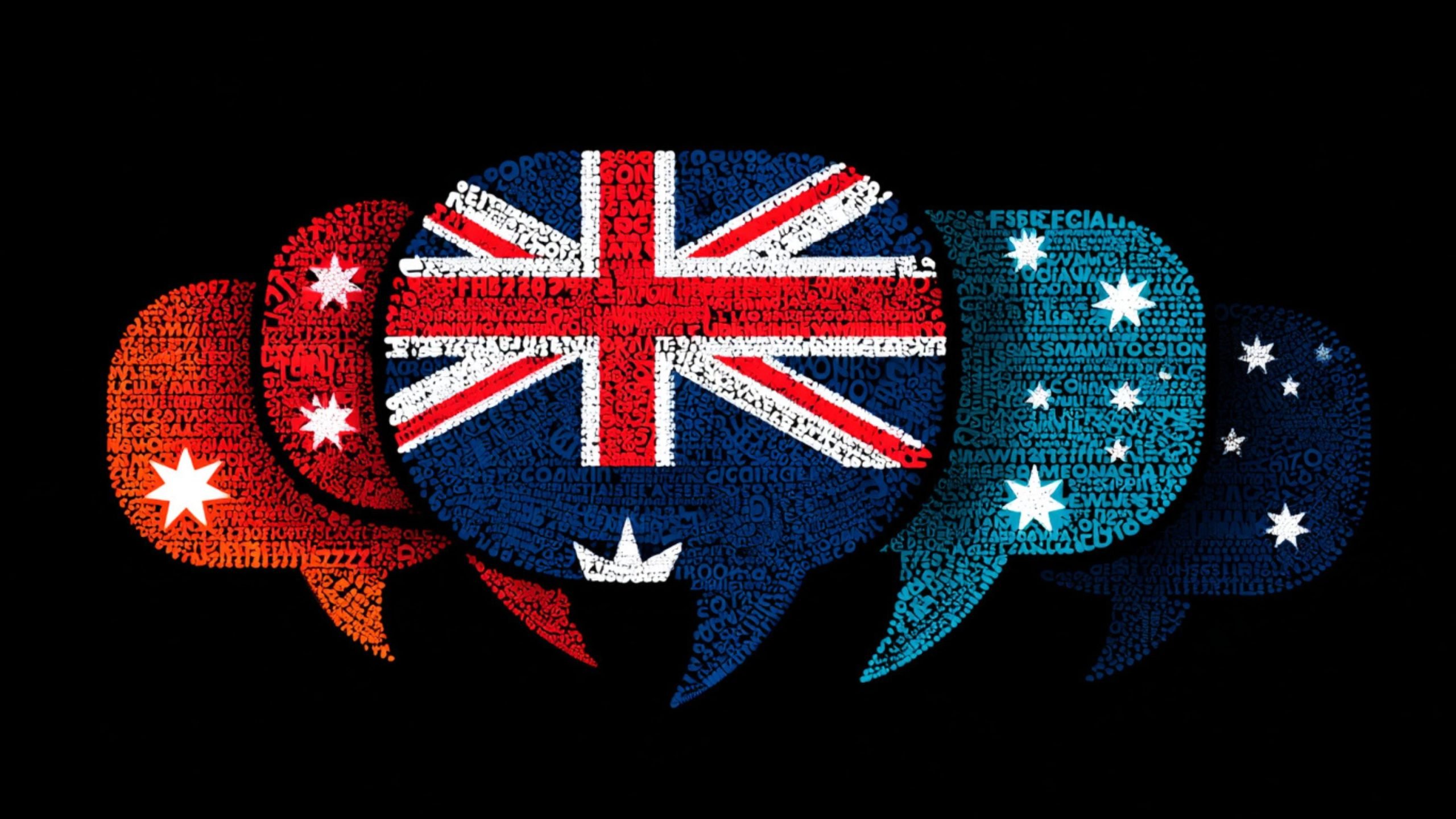Australia’s online censorship authority has ignited renewed controversy after warning X that it could face $825,000 in daily fines if it did not take down or block 23 posts containing viral CCTV footage of the killing of Ukrainian refugee Iryna Zarutska who was living in the United States.
The video showed Zarutska was killed by Decarlos Brown, a man with a long history of violent crimes who had been released from custody only weeks earlier under North Carolina’s bail laws.
The order was issued by eSafety Commissioner Julie Inman Grant, whose office claimed the footage violated Australian content laws.
In response to the threat, X reportedly restricted access to some of the posts for Australian users.
The 20-page notice, dated September 26, declared the footage “refused classification” and ordered its removal or geoblocking.
It warned that “failure to comply with the Notice may result in enforcement action, including the commencement of civil penalty proceedings for a civil penalty order of up to a maximum penalty of $825,000 (AUD) for a single contravention by a body corporate.”
The order targeted a range of public figures, among them Belgian activist Dries Van Langenhove, American broadcaster Alex Jones, Dutch commentator Eva Vlaardingerbroek, Malaysian commentator Ian Miles Cheong, American journalist Nick Sortor, and British commentator Basil the Great.
Van Langenhove revealed he had received the notice through X’s legal team and shared it publicly, asking his followers, “Who does Julie Inman Grant think she is?”


Cheong also reacted strongly, writing, “Julie Inman Grant thinks she owns the internet.”
The dispute arises as the commissioner prepares to implement nationwide digital ID age restrictions for social media, scheduled to begin on December 10.
Inman Grant, an American-born official, previously worked for Twitter before leading the eSafety office, where she has consistently pushed for online censorship.
Her tenure has been marked by repeated clashes with X and Elon Musk over efforts to control online content.
She has attempted to remove posts critical of gender ideology, threatened fines over content disputes, and coordinated with large advertising groups to pressure platforms into compliance.
Last year, she also issued a threat of fine against X over a post referring to a transgender man as a woman. X won the fight.
Inman Grant’s failed previous attempt to force X to censor footage of a church stabbing in Sydney exposed the limits of Australia’s global censorship efforts.
Despite a temporary court order to block the content, X resisted, arguing it had already geoblocked the footage for Australian users and that Australia had no right to dictate global content standards.
After suffering legal setbacks and the expiration of the temporary order, Inman Grant dropped the case, claiming it was a practical decision amid ongoing litigation. However, the move was widely seen as a retreat. X celebrated the outcome as a win for free speech and a warning against international overreach.
The clash deepened tensions between Elon Musk and the commissioner, whom he labeled a “censorship commissar.”










